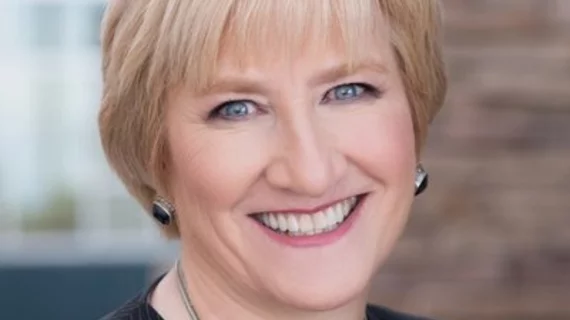AMA president: Physicians must use platform to drive healthcare change
Barbara L. McAneny, MD, wasted no time in discussing critical healthcare issues once she was sworn in as American Medical Association president on June 12 at the AMA’s annual meeting in Chicago.
The oncologist from Albuquerque, New Mexico, said it will be important for physicians to recognize the social determinants of health, work with the technology industry to facilitate digital breakthroughs in medicine and keep an eye on mergers and acquisitions to protect patients from overconsolidation.
“We have the most important ingredients in our hands,” McAneny said in an AMA release. “We have our patients’ trust. We have the will, the expertise and the view of our system at its most crucial point—inside the exam room with patients.
“And thanks to organizations such as the AMA, as well as state and specialty societies, we have a voice. We have a platform from which we can lead on any issue—and work to realign our health care system so that patients and physicians are back in the center.”
Also on June 12, Atlanta psychiatrist Patrice A. Harris, MD, won the office of president-elect. She will become the first black woman to serve as AMA president when she assumes leadership in June 2019.
“It will be my honor to represent the nation’s physicians at the forefront of discussions when policymaker and lawmakers search for practical solutions to the challenges in our nation’s health system,” Harris said in another AMA news release. “I am committed to preserving the central role of the physician-patient relationship in our healing art.”
Harris was elected to the AMA board of trustees in 2011 and has served as board secretary and board chair. She will remain as chair of the AMA Opioid Task Force and has also contributed to other task forces and committees on health IT, payment and delivery reform and private contracting, according to the release.
In other developments at the AMA meeting, three new members joined three incumbents on the board of trustees. The newcomers include Sandra A. Fryhofer, MD, an internist from Atlanta; Mario Motta, MD, a cardiologist who practices in Salem, Massachusetts; and Scott Ferguson, MD, a diagnostic radiologist from West Memphis, Arkansas.
The incumbent trustees are Jesse M. Ehrenfeld, MD, MPH, an anesthesiologist from Nashville; Russell W.H. Kridel, MD, a Houston-based facial plastic and reconstructive surgeon; and Jack Resneck Jr., MD, a dermatologist from the San Francisco Bay Area.

